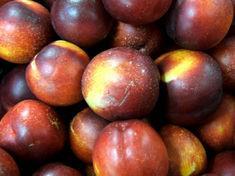
European stonefruit growers are happily gearing up to harvest a larger crop this season than in 2008, although the sterling-euro exchange rate is causing concern.
Peach and nectarine production is forecast to near the three-million tonne mark, according to figures released at this week’s Europêch’ conference in Perpignan - volumes seven per cent higher than in 2008, owing to better weather conditions.
European apricot production is forecast to reach almost 515,000 tonnes, 12 per cent more than in 2008, due to the French crop more than doubling in size.
The positive figures suggest the industry is getting back on track after a tough 2007 and 2008. However, concerns were raised over the global recession and, in particular, the viability of markets such as the UK and Russia, with a question mark hanging over whether exporters would be prepared to keep sending to their traditional markets in light of currency issues.
The cold 2008-09 winter has helped development of fruit trees, even in traditionally milder climates such as Spain and Italy. Flowering across Europe kicked off slightly earlier than 2008, but a cold snap at the start of March put paid to the advance. Relatively low temperatures at the end of April have led to a delay of around four to eight days in the season
Spain is not expected to reach its full production potential but will realise a five per cent rise in peach volumes and six per cent in nectarines thanks to the good conditions over the winter months.
Greece is also predicted to record slightly higher production levels than last year, with peaches two per cent greater in volume and nectarines up four per cent.
The cold, wet winter also helped flowering in Italy. Peach volumes are predicted to rise by five per cent and nectarines by eight per cent. These levels are in line with 2005, 2006 and 2007, but lower than 2002 or 2004.
In France, last year’s peach and nectarine crop was damaged in many areas by hail and frost, but this year volumes are due to rise significantly, by 16 per cent for peaches and 15 per cent for nectarines.
Apricot production in Italy, Greece and Spain is down from last year, while in France it has more than doubled and is set to stand at 170,000t - a 115 per cent leap from 2008. However, this volume is still slightly lower than in 2005-06. Greece and Italy will grow 50,000t and 200,000t of apricots respectively in 2009, a reduction of 30 per cent for the former and five per cent for the latter. Spain will produce 90,000t of apricots this season, two per cent lower than in 2008 and 15 per cent lower than the 2003-07 average.
The weather in May and June, especially temperature and sunshine level, will determine the final outcome of the European campaign, according to Eric Hostalnou from the French region of Roussillon’s Chamber of Agriculture.



